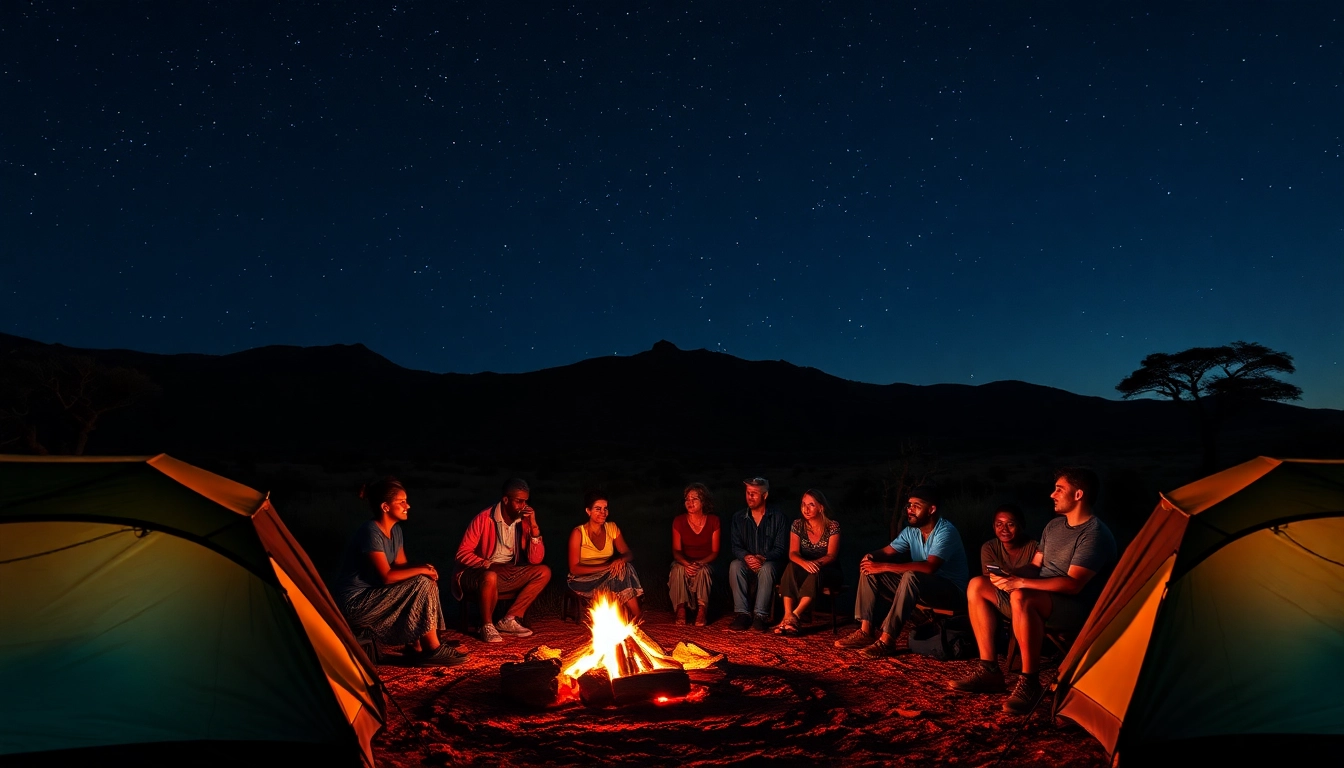Understanding Tanzania Budget Camping Safari
Embarking on a Tanzania budget camping safari is an adventurous, immersive experience that allows travelers to explore the stunning natural beauty and rich wildlife of Tanzania without breaking the bank. This form of safari is particularly favored by budget-conscious travelers who wish to enjoy the African wilderness while keeping their expenditures in check. From iconic national parks to breathtaking landscapes, budget camping safaris offer a unique and memorable experience.
What to Expect on a Budget Safari
A budget camping safari typically involves shared group travels, which helps distribute costs among travelers. Expect a focus on the essentials, with accommodations primarily in tents rather than luxury lodges. While the amenities might be simpler, the experience of camping under the stars, surrounded by nature, is unparalleled. Travelers can expect:
- Basic Tent Accommodation: Tents are usually rudimentary but comfortable, often equipped with sleeping bags and pads.
- Shared Meals: Meals are prepared collectively, allowing for a communal atmosphere that enhances social interactions.
- Wildlife Encounters: Camp sites are often close to wildlife areas, offering opportunities for spontaneous animal sightings during the day and night.
- Experienced Guides: Professional guides lead the safaris, providing invaluable insights into the ecosystem, animal behaviors, and local cultures.
Key Destinations for Safari Adventures
Tanzania is renowned for its spectacular national parks, each offering a unique blend of wildlife and landscapes. Here are some must-visit parks for your budget camping safari:
Serengeti National Park
The Serengeti is perhaps the most famous safari destination in Tanzania, known for its vast savannahs and the Great Migration, where millions of wildebeest and zebras traverse the plains in search of fresh grazing lands. Budget camps in the Serengeti provide an authentic experience, allowing you to wake up to the sounds of nature.
Ngorongoro Crater
This UNESCO World Heritage Site is a geological wonder and a vital sanctuary for thousands of animals including lions, elephants, and black rhinos. Because of its unique ecosystem, it offers excellent wildlife viewing opportunities, sometimes within a single day!
Tarangire National Park
Less crowded than Serengeti and Ngorongoro, Tarangire is famous for its large elephant herds and the iconic baobab trees. The park is an excellent choice for budget camping safaris, providing a more intimate wildlife experience.
Lake Manyara National Park
Known for its stunning landscapes and diverse habitats, Lake Manyara is famous for tree-climbing lions and large flocks of flamingoes. This park offers a more compact safari experience, making it a great option for those short on time.
Cost Breakdown for a Budget Safari
Understanding the costs associated with a budget camping safari is crucial for effective planning. Here’s a typical breakdown of expenses:
- Park Fees: Expect to pay park entry fees averaging between $50-$70 per day, which contributes to wildlife conservation efforts.
- Camping Fees: Charges for camping sites can range from $30-$50 per night based on location and facilities provided.
- Meal Costs: Daily food expenses range from $20-$30, depending on the group’s meal preferences and whether meals are self-cooked or arranged by the safari operator.
- Transportation: Costs for shared transportation can vary, but budget around $100 per day per person for a comfortable safari vehicle.
- Guide Fees: Professional guides typically charge between $20-$50 per day per person, an essential cost for a safe and informative experience.
Planning Your Tanzania Budget Camping Safari
Proper planning is essential for a successful budget camping safari. Here are some key considerations to help you navigate your adventure.
Choosing the Right Time to Visit
The timing of your safari can greatly impact your experience. The dry season, from June to October, is often recommended due to optimal wildlife viewing conditions. On the other hand, the wet season (November to May) has its benefits, including fewer crowds and lush landscapes, but be prepared for some rain. Each season offers unique wildlife experiences, so consider your priorities when planning your trip.
Essential Packing List for Your Safari
What you pack can significantly affect your comfort and enjoyment on a budget camping safari. Here’s a list of essentials to consider bringing:
- Sleeping Gear: A quality sleeping bag, sleeping pad, and a pillow or travel cushion.
- Clothing: Lightweight, breathable clothes suitable for layering, and a warm jacket for cool nights, along with sturdy hiking boots and sandals.
- Outdoor Gear: A reliable backpack, personal tent (if not provided), and a good-quality insect repellent.
- Personal Items: Sunscreen, toiletries, first-aid kit, and any medications you may need.
- Camera and Binoculars: Capture the breathtaking views and wildlife with a camera and bring binoculars for enhanced wildlife watching.
Safety Tips for Budget Camping Safaris
While budget camping safaris can be an exhilarating experience, safety should always be a top priority. Here are essential safety tips:
- Follow Your Guide: Always adhere to the guidance of your safari guide, especially during wildlife encounters.
- Food and Water Safety: Drink only bottled or boiled water and be mindful of food hygiene when eating camp-prepared meals.
- Secure Your Belongings: Keep valuables in a secure location and avoid drawing unnecessary attention to them.
- Remain Calm with Wildlife: Respect the distance from animals, and if approached, follow guidelines to minimize risks.
Booking Your Tanzania Budget Camping Safari
Securing your budget camping safari should involve thorough research and consideration of various factors to ensure you find the best experience.
Best Practices for Finding Tours
Start your search by looking for reputable tour operators that specialize in budget camping safaris. Reading reviews on travel platforms and forums can provide valuable insights. Make sure to compare packages that offer similar itineraries, inclusions, and the overall cost.
Understanding Safari Itineraries
A well-structured itinerary is critical to maximizing your experience. Look for itineraries that include visits to a variety of parks and activities. Typically, safaris can range from a few days to several weeks, and a variety of experiences such as game drives, nature walks, and cultural visits can enhance your experience significantly.
Negotiating Prices and Packages
Don’t hesitate to negotiate packages with tour operators. As a budding traveler, be aware that costs can often be adjusted, especially during the off-peak season. Ensure you have a clear understanding of what is included in your package (meals, transport, accommodation) to avoid hidden fees later.
Enhancing Your Experience on a Budget Safari
To maximize your experience while on a budget camping safari, consider the following tips:
Interacting with Wildlife Safely
Encounters with wildlife can be one of the most thrilling aspects of a safari. However, always respect their space. Use binoculars for viewing wildlife from a distance, and never attempt to feed or approach animals, which can disrupt their natural behaviors.
Maximizing Value on Budget Safaris
Engage with your group and share stories and experiences. Often, bonding with fellow travelers can enhance your overall experience. Additionally, participate actively in camp activities, cooking meals, and setting up tents; they are not only practical but also help build camaraderie.
Sharing Experiences with Other Travelers
Take the time to connect with other travelers and share insights. Online forums and social media groups can also provide platforms for exchanging advice, tips, and stories about your safari adventures.
Post-Safari Reflections and Recommendations
After your adventure concludes, reflect on your experiences and consider what you would recommend to future travelers.
Evaluating Your Safari Experience
Take time to evaluate both the positive and negative aspects of your safari experience. This can include reflecting on the quality of wildlife sightings, the effectiveness of your guide, and your overall comfort level with the camping experience. Journaling your trip can help articulate thoughts for future referrals.
Recommendations for Future Travelers
Future travelers can benefit from your insights. Consider listing down what worked well, what you wish you had known beforehand, and any tips that could help them maximize their experience while keeping costs manageable.
Connecting with Other Safari Enthusiasts
Stay in touch with your fellow travelers or connect with other safari enthusiasts through social media groups, forums, or travel blogs. This not only enhances your own travel experience but also creates a network for sharing valuable travel insights and plans for future adventures.



